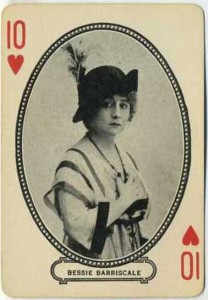"A Visit to Movieland" reprinted from The Forum magazine, January 1920. This is the 2nd of 9 parts. Written by "The Forum's Correspondent."
A Land of Perfect Weather:

Charlie Chaplin
As our motor leaves the city streets and we hum down long boulevards pretentious with palm trees, transplanted there by Angelos, and approach the foot-hills where Charlie Chaplin built a house approaching a Grand Duke's in size and elegance, they tell us: "Los Angeles is the film capital of the world. Last year only twelve days of rain--perfect sunshine the rest of the time, conditions for picture-taking that you'll find nowhere else in the United States. You see, there is everything for the movies. Mountains, only a few hours by train, the desert, then half an hour by car and you have the ocean beaches and high cliffs; a few hours to the north, up the valley, and there's farm country--practically every background the movies require in easy reach. That's why the studios are here and always will be here."

Bessie Barriscale
Our car nosed into Hollywood, a place of bungalows where live the great and the some-day-great of Movieland, and beyond them white walls of huge studios. Most of the companies have their own plants, but there is one vast place, a community studio, as it were. Here--they call it Brunton's--are five great studios rolled into one. To this place come companies contracting for the use of the stages, labor and materials by the picture or by the year. Here one finds several of the stars whose names are great in film lore--Mary Pickford, Bessie Barriscale, J. Warren Kerrigan, Henry B. Walthall, George Loane Tucker and Allan Dwan. Here a thousand dollars was mentioned as casually as a dime.

Henry B Walthall
We noticed, coming into the enclosure, a number of gardens--Colonial, Italian, English, and Japanese in design, colorful with flowers, abundant with pretty nooks, artfully designed to present bewitching little vistas of foliage and fountains. And our movie friend said: "That's so they won't have to go away from the lot if they want to take a garden scene. You see, the actors can step off one of the studio stages when they've finished with an interior set and just cross the road to do a garden scene. It saves money. You're not paying actors fancy salaries to have the time consumed riding around the country, looking for pretty garden backgrounds." So, efficiency was coming into the movies!

J Warren Kerrigan
The studio streets that day were swarming with people. Over there, a squadron of Napoleon's cuirassiers, two hundred supers who had to be paid $5 each simply so that one scene you would see for a brief five seconds on the screen would be convincing--a vision of Napoleonic days conjured up in the mind of the leading character in the play. And here were a hundred doughty doughboys, many months mustered out of the army, but on hand now in their uniforms to pick up a few easy dollars--background for a brief war scene. And what a motley mob is there--five hundred, no, almost a thousand men, few of them speaking English, Mexicans all, five of them ex-members of Villa's Guard of Gold bandits, who find the pickings better around the movie studios these days than in Mexico. And girls--tall girls and short girls, curly-haired girls and girls with their hair drawn sleekly back over their brows, girls who suggest mignonettes and girls who suggest tube-roses; girls in aprons and girls in evening gowns--girls by the score, their faces all grease paint, waiting in little chattering groups for their big moment of the day, when the studio door opens and through a megaphone a voice bawls: "Extra girls for Stage Three--this way--Hurry now, children!" After which they will be grouped by the director, "languid atmosphere" for a mob that is shortly to surge forth and burn a papier-mache Rome. And I learned that the "extra" girls received $7 a day.
Next: Part 3: "'Raving Beauties' Not Wanted"
Previous: Part 1


Ok Ok, I wanna go to Movieland…. When is the next train?